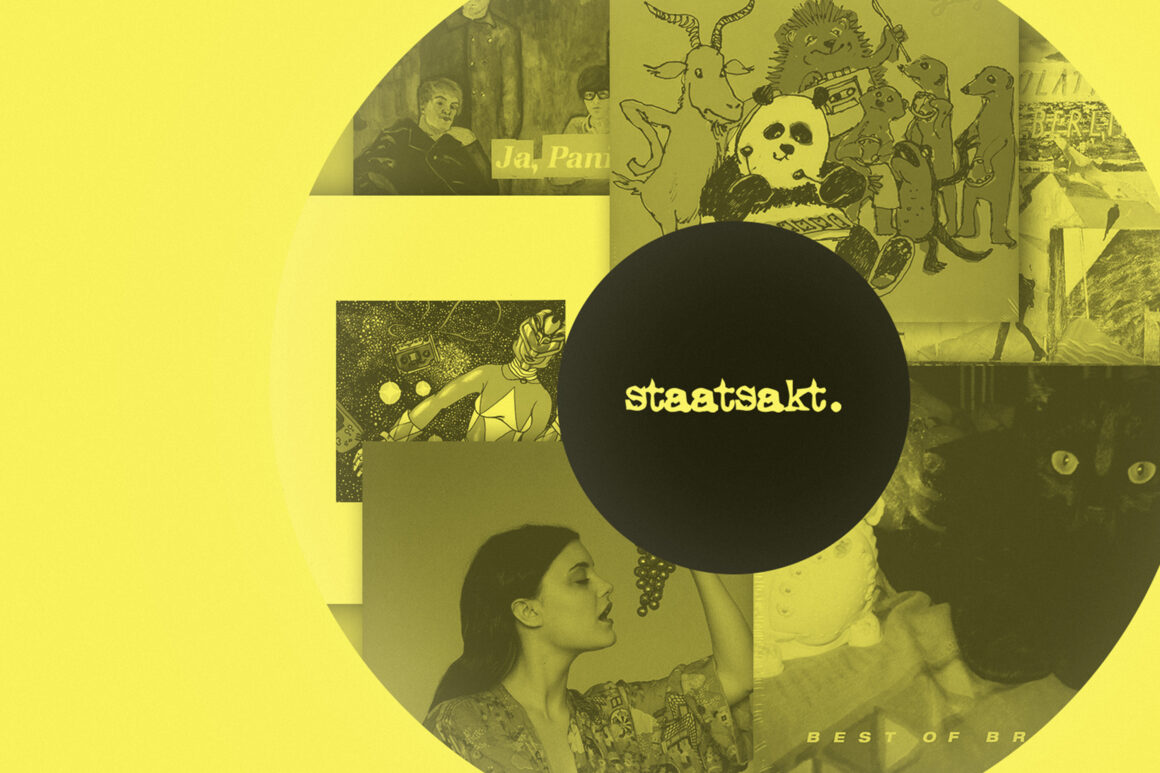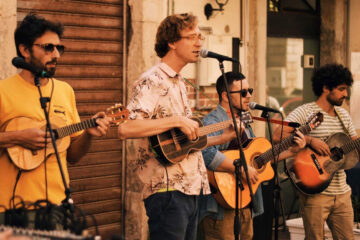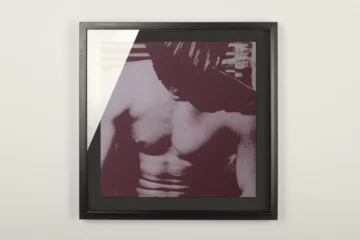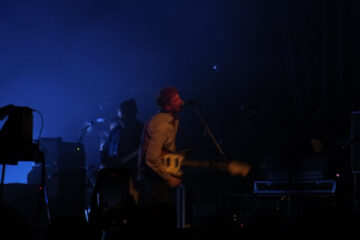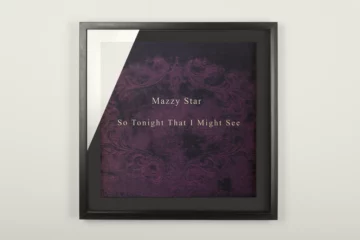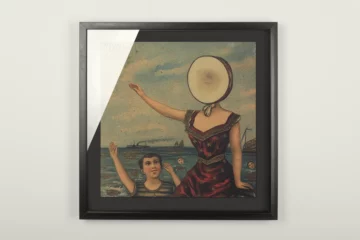The year is 2003: MySpace, burning CDs and illegal file sharing are all the rage. Lots of record companies are keeping their heads above water by selling CDs – when they are not getting their lawyers to send cease-and-desist letters to teenagers who are downloading music illegally. Indie Germany is in the gutter: labels like Kitty-Yo, L’Age D’Or and Buback are struggling to stay afloat. So it’s the perfect time for a completely unknown band to found a label for their debut album, or so Maurice Summen and Gunther Osburg of Die Türen think.
»Das Herz war Nihilismus« is selling surprisingly well. But it’s another act that will really get the label going a few years later: Bonaparte’s success puts Staatsakt on the music scene map: »Suddenly it was as if Bonaparte was on the radio everywhere, shows were going pretty well, big festivals were interested, and things were starting to happen internationally in France, Holland and so on. That was the moment when everyone from international distributors to the mainstream media suddenly wanted to talk to you because everyone wanted a piece of the action. From that point on, the operation became more and more professional«.
Berlin in the early 2000s was when you could still pay 70 instead of 600 euro for a room in a shared flat and could still afford to be in the right place at the right time for a great night out. »I’ve been lucky enough to meet an insane number of fantastic musicians in this city, whether it’s Chris Imler or Christiane Rösinger, the group Ja, Panik or Jens Friebe. Back then, it was a little scene all of its own centred around the hussy bar, where you ended up feeling a bit like a representative of the scene as a label.«
Söders didn’t go on to hear Staatsakt
The Staatsakt family grew steadily in the following years: from Chuckamuck to International Music and from Locas in Love to Isolation Berlin. The sub-label »Fun In The Church« is soon founded for »outernational music for interplanetary people«, because »people have come to expect German-language, somehow alternative-leftist statements from Staatsakt«. But the output doesn’t have to be overtly political, they’re not into agitprop. More important to Summen is the attitude, which always resonates but doesn’t always have to be spelled out. »I don’t think we have people in our ranks who are conservative, centre-right or worse. But I do think that there are a lot of people whose political stance I can identify with, who definitely have a few Staatsakt albums in their record cabinet.«
»We have a lot of music that comes from classic rock guitar. That’s pretty hackneyed, you might think. Still, what comes together from bass, drums and guitar in a very conventional way–and how–is often quite surprising.«
…
Apart from the vaguely left-wing alternative stance, what the Staatsakt acts have in common is this: »Ultimately, I find it important that people have their own form of expression, in other words that they have found a clearly recognisable musical idea and their own musical language; be it on the lyrical side or in terms of instrumentation. We have a lot of music that comes from classic rock guitar. That’s pretty hackneyed, you might think. Still, what comes together from bass, drums and guitar in a very conventional way–and how–is often quite surprising. It’s something that you’ve never heard before.«
The 20th anniversary is now being celebrated in Berlin with a big gala complete with orchestra at the »Hebbel am Ufer«, the oral history turned into a book called »Was erscheint, ist gut, was gut ist, erscheint« (Verbrecher Verlag), an extensive club tour with constantly changing bands and, last but not least, the new Die Türen album »Kapitalismus Blues Band« will be released at the beginning of October.
From MySpace to iTunes to Spotify, the internet has changed listening and consumption habits and created extensive and far-reaching information outlets, even for obscure subcultures: »This whole digital transformation I’ve experienced is crass. The world was a completely different place back then. In that sense, I’m definitely looking forward to the changes over the next 20 years. And the fact that vinyl has returned is also nice. I grew up with vinyl and have an intimate relationship with records, so I’m really happy about that.«

